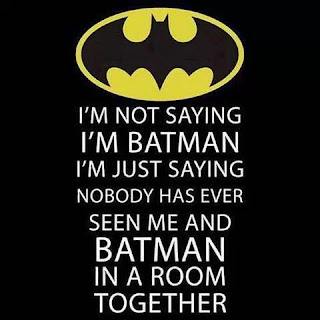The Origins:
Nerd culture traces its roots back to the early 20th century, where it primarily revolved around intellectual pursuits, often associated with science, technology, and academia. Early nerds were passionate about subjects like mathematics, science fiction, comic books, and tabletop gaming. However, their interests often led to social exclusion, and they were considered outsiders.
The Rise of Pop Culture:
The turning point for nerd culture came with the rise of popular culture in the latter half of the 20th century. The emergence of comic books, science fiction novels, and movies like Star Wars and Star Trek paved the way for the broader acceptance of geeky interests. Suddenly, nerds found a sense of community, bonding over shared passions and forming fan clubs.
The Influence of Technology:
The advent of technology, particularly the personal computer, played a crucial role in the evolution of nerd culture. As computers became more accessible and interconnected, nerds found themselves at the forefront of the digital revolution. Programming, gaming, and online communities provided a platform for nerds to connect, collaborate, and express their creativity.
Mainstream Media Embraces Nerd Culture:
In recent years, mainstream media has fully embraced nerd culture, bringing it to the forefront of entertainment. The success of comic book-inspired movies, such as the Marvel Cinematic Universe, has catapulted superheroes into the mainstream consciousness. TV shows like "Stranger Things" and "The Big Bang Theory" have depicted nerd characters in relatable and endearing ways, humanizing their experiences and struggles.
Geek Chic: Nerd Culture in Fashion and Style:
Another significant shift has been the influence of nerd culture in fashion and style. What was once seen as uncool or socially awkward has now become trendy and fashionable. Nerd-inspired clothing, accessories, and merchandise have become mainstream, allowing individuals to proudly display their geeky interests. Cosplay, once reserved for niche conventions, has gained popularity and become a form of self-expression and celebration of nerd fandom.
The Impact of Social Media and Online Communities:
Social media platforms and online communities have played a vital role in connecting nerds worldwide. Platforms like Reddit, Twitter, and Instagram have become hubs for discussions, fan theories, and sharing creations. Online forums and communities have provided safe spaces for nerds to find like-minded individuals, fostering a sense of belonging and creating global networks.
The Shift in Perception:
The acceptance and celebration of nerd culture have led to a significant shift in public perception. What was once stigmatized and mocked is now admired and respected. Nerds are seen as passionate, knowledgeable, and creative individuals who contribute to various fields like technology, arts, and sciences. The barriers that once existed between nerds and mainstream society have been broken down, leading to a more inclusive and diverse cultural landscape.
Conclusion:
The evolution of nerd culture from its humble beginnings to its current mainstream status is a testament to the power of passion, community, and changing societal attitudes. What was once considered a subculture has now permeated every aspect of popular culture. Nerd culture's journey serves as an inspiration, reminding us that embracing our passions and individuality can lead to a transformative and inclusive society. As nerd culture continues to evolve, we can look forward to new milestones, innovations, and the celebration of all things geeky.












No comments:
Post a Comment
Comments containing links will be marked as spam and not approved.